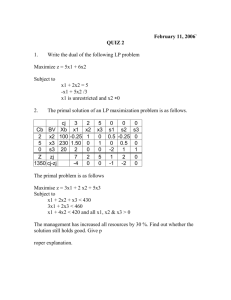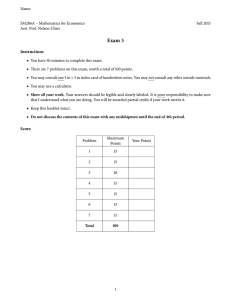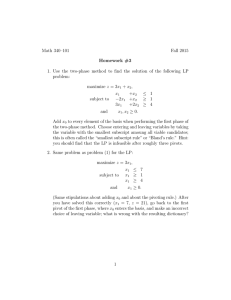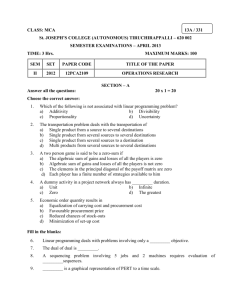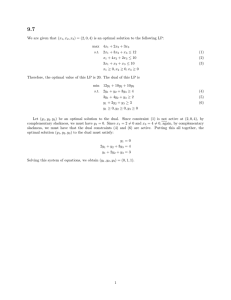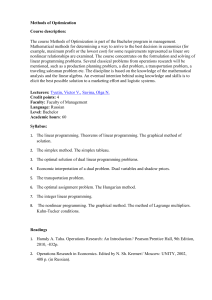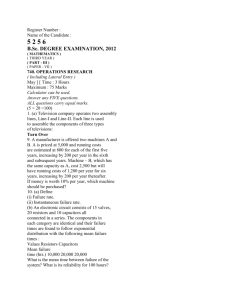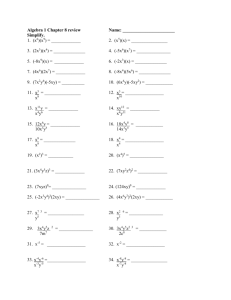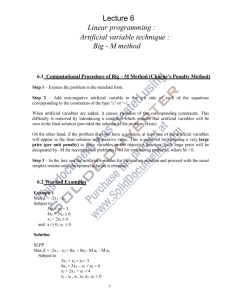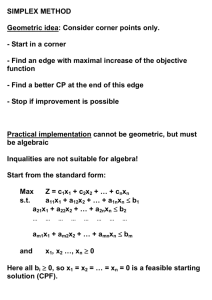Assignment #8 #1. Define LP P as: max z = 3x1 + 4x2 + x3, s.t. x1 +
advertisement
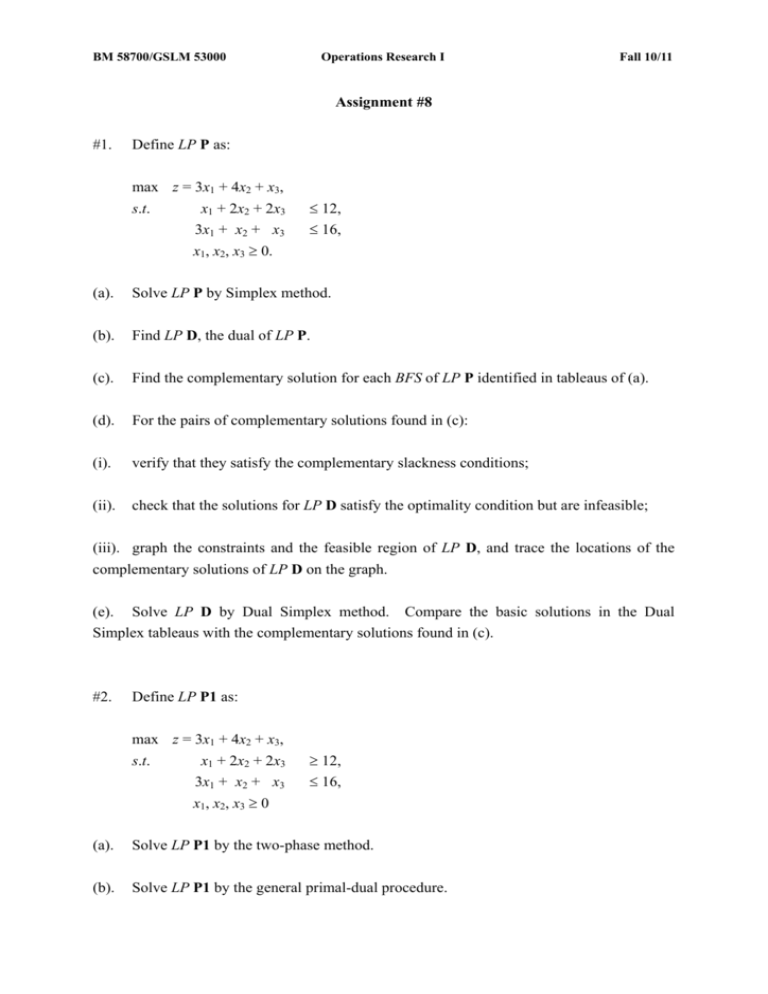
BM 58700/GSLM 53000 Operations Research I Fall 10/11 Assignment #8 #1. Define LP P as: max z = 3x1 + 4x2 + x3, s.t. x1 + 2x2 + 2x3 3x1 + x2 + x3 x1, x2, x3 ≥ 0. ≤ 12, ≤ 16, (a). Solve LP P by Simplex method. (b). Find LP D, the dual of LP P. (c). Find the complementary solution for each BFS of LP P identified in tableaus of (a). (d). For the pairs of complementary solutions found in (c): (i). verify that they satisfy the complementary slackness conditions; (ii). check that the solutions for LP D satisfy the optimality condition but are infeasible; (iii). graph the constraints and the feasible region of LP D, and trace the locations of the complementary solutions of LP D on the graph. (e). Solve LP D by Dual Simplex method. Compare the basic solutions in the Dual Simplex tableaus with the complementary solutions found in (c). #2. Define LP P1 as: max z = 3x1 + 4x2 + x3, s.t. x1 + 2x2 + 2x3 3x1 + x2 + x3 x1, x2, x3 ≥ 0 ≥ 12, ≤ 16, (a). Solve LP P1 by the two-phase method. (b). Solve LP P1 by the general primal-dual procedure.
